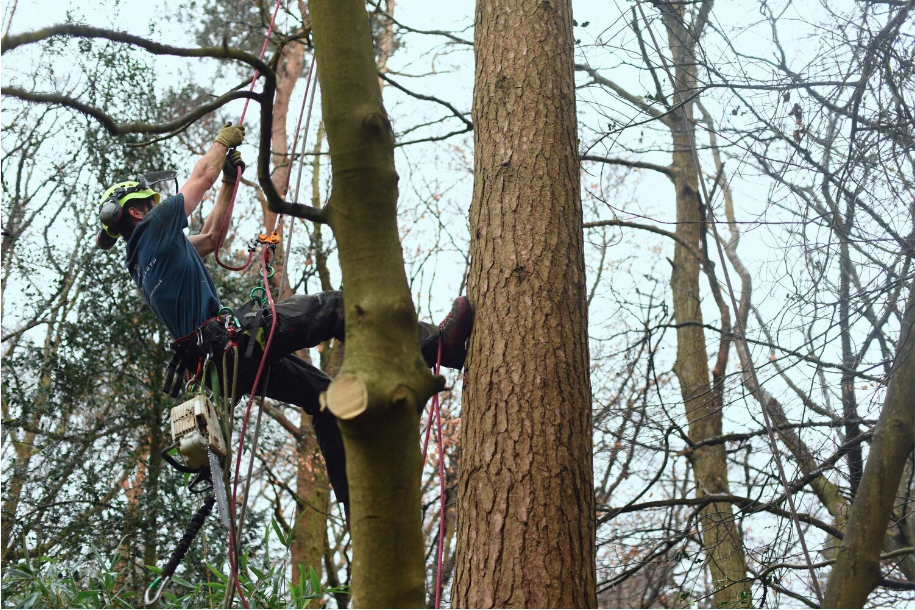Tree Surgeon Safety Tips for Budding Tree Surgeons Everywhere - The DTE Academy
Life as a qualified tree surgeon can be very satisfying and rewarding. However, it can also be dangerous, especially if you do not take the right precautions. Follow our tree surgeon safety tips to ensure that you do not put yourself in any unnecessary danger.
Tree Surgeon Safety Tips for Newly Qualified Arborists
The better prepared you are, the easier it will be for you to stay fit and healthy, and enjoy your new profession.
Always Wear Protective Gear - Hard hats, safety glasses/goggles, ear defenders, gloves and protective clothing are designed to keep you safe. Make sure you always wear the right gear and keep it in good working order. If you are just starting out as an apprentice, you should consult your training supervisor or your immediate superior to find out what kind of PPE you will be issued with as a matter of course. Some teams may expect you to buy some of the equipment yourself whilst others will supply everything you need.
Use the Right Tools - Make sure you always use the right tools for each job and keep them all in good condition. If you're ever unsure what tool to use for a specific job, seek advice from a more experienced colleague or from your supervisor. The more experience you gain, the better you will be at choosing and taking care of tools. However, in the beginning, you will need some help from more experienced colleagues. With this in mind, we urge you never to be shy about asking for tree surgeon safety tips from the people you work with every day. Chances are, they have faced exactly the same issues you are facing with all the new tools you have to familiarise yourself with and will be pleased to share their wisdom with you.
Stay Alert - Working as a tree surgeon requires a high level of focus and concentration. Always stay alert and aware of your surroundings and take a break if you feel your concentration drifting. Different people have different strategies for staying alert and what works for one person may not work for the next. You should therefore try to experiment as much as possible in the early days, to establish what works best for you.
Know Your Own Limits–It’s essential to know your limits when working as a tree surgeon. Never attempt to tackle tasks that you're not qualified or experienced enough to handle. This applies to physical limits too. Test yourself whilst you are still in a safe learning environment to see what your physical limits are. It may be that with regular strength and resistance training, you can extend these limits in the future but never try to push yourself too far in the workplace. Of all the tree surgeon safety tips we have gathered together here, this is one of the most important to remember.
Plan Each Job Carefully–By planning each job carefully, you can avoid making unnecessary errors. You should also make sure that other team members understand their roles and the risks involved. If you are still in the process of completing your apprenticeship as a tree surgeon, you should take every opportunity to learn about planning from your co-workers. Planning complex arboricultural procedures can sometimes be more of an art than a science so it pays dividends to take advice from those with more experience than yourself.
Use Proper Climbing Techniques - Tree surgery involves working at height, which can be dangerous. Always use proper climbing techniques and equipment, such as ropes, harnesses and ladders, to reduce the risk of falls. Your immediate supervisor will pass on tree surgeon safety tips on the safest and most efficient climbing techniques so pay close attention to what he or she has to say.
Keep Your Distance From Power Lines - When working near power lines it's vital that you maintain a safe distance. Make sure that all of your equipment, including ladders and ropes, is kept a safe distance away from power lines. Never, on any account, take unnecessary risks with electricity.
If you’re keen to learn everything you can about tree surgery safety protocols, consider enrolling in one of our accredited City & Guilds courses.

